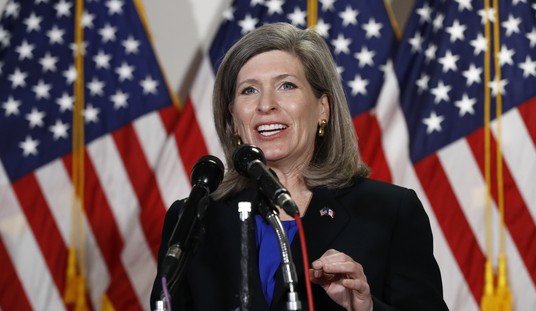For those who may not follow the “logic” behind the government’s climate change mandates all that closely, The New Yorker has a very good deep dive into the workings of what they call The Great Cash for Carbon Hustle. When we think of federal climate edicts, the first things that generally come to mind are bans on various appliances and products that produce what our betters consider to be excessive carbon emissions or regulatory restrictions on such products. But from the beginning of all of this madness, Uncle Sam always offered a pathway for some companies to avoid having to slash their emissions. It’s a system known as “climate credits,” where companies can keep on doing business as usual as long as they are willing to pony up some cash to others who would supposedly do the work of reducing their own carbon footprints to make up for the dirty, carbon-emitting customers. That’s the “hustle” being described here, and there are people who have made some very tidy profits off of this scheme. Some of them are found at a company called South Pole, where CEO Renat Heuberger has cashed in handsomely from this system.
A decade earlier, South Pole had signed a deal to sell carbon offsets from an effort to protect a vast swath of forest on the banks of Lake Kariba, upriver from the camp. The Kariba project, spanning an area ten times the size of New York City, was among the world’s first “avoided deforestation” programs; by deterring local people from chopping down trees, it promised to prevent the release of tens of millions of tons of greenhouse gas. Leading corporations, including Volkswagen, Gucci, Nestlé, Porsche, and Delta Air Lines, paid South Pole nearly a hundred million dollars for Kariba credits, allowing them to market goods or services as “carbon neutral.”
South Pole thus pioneered a model of carbon offsetting that has been counted among our best hopes for staving off climate catastrophe: a mechanism that diverts funds from polluters in wealthy countries to protect crucial ecosystems in the Global South. Heuberger, a kinetic, grandiloquent man, speaks expansively about his mission. “We’re here to save the climate,” he told me.
The mechanism for all of these supposed “carbon offsets” is a system of what are known as RIN credits (Renewable Identification Number). They are somewhat vaguely defined, but they allegedly refer to the amount of carbon emissions that are prevented by each gallon of “renewable fuel” (such as ethanol or biodiesel) that is produced. So anyone who is ostensibly doing things to reduce emissions can charge money to companies generating emissions in exchange for credits that allow them to advertise themselves as a “carbon neutral” company.
In the case of South Pole, they weren’t really “doing” much of anything. They were placed in charge of protecting a huge swath of forest in Africa from illegal logging. So in reality, they were stopping people from chopping down trees that weren’t supposed to be chopped down anyway. The trees then keep on sucking up carbon dioxide and producing oxygen like they always do without any human supervision. But having been designated a RIN credit supplier, South Pole can collect vast sums of money in exchange for doing what they were already doing anyway. This system has made Renat Heuberger a billionire.
This is quite the impressive feat if we’re being honest. Companies across North America and Europe such as automotive manufacturers don’t want to be forced into reducing emissions in either the manufacturing process or from the vehicles they produce. But they also want to be able to impress the climate alarmism crowd and avoid boycotts. So they cough up the cash for these RIN credits and they get to proclaim that they are faithfully adhering to the gospel of the Climate Goddess.
During his interview, Heuberger really played up the virtues of this system for the media. He pointed to the carbon offset program being used at Porsche. He said that saving the planet in this fashion doesn’t mean that “we will all need to go into perpetual lockdown or stop having fun.” He bragged that drivers should be able to “enjoy their vehicles, knowing that every ton of CO2 they compensate for is backed by a verified emission reduction.”
And what is this “verified” emission reduction that he’s talking about? Oh, right. Those would be the trees I mentioned above that nobody is cutting down. But nobody seems to notice and it’s made Renat Heuberger into something of a minor celebrity on the left. He’s regularly been a featured speaker at Davos and he frequently addresses the World Economic Forum. (He offered no hint as to how many RIN credits he required to go to all of those events in his private jet.)
Much of the rest of the article offers insights into how companies like South Pole compete with other carbon credit outfits, where the money comes from and where it winds up going. Reporters investigating the situation discovered that the one of the core principles of carbon offsetting is that profits should be directed to benefit indigenous people. But in the case of South Pole, that was clearly not what was going on. One of the people involved blatantly described it as a “money-making machine.” And I suppose that’s all well and good in the eyes of the climate cult as long as that machine has a “carbon neutral” sticker on it.







